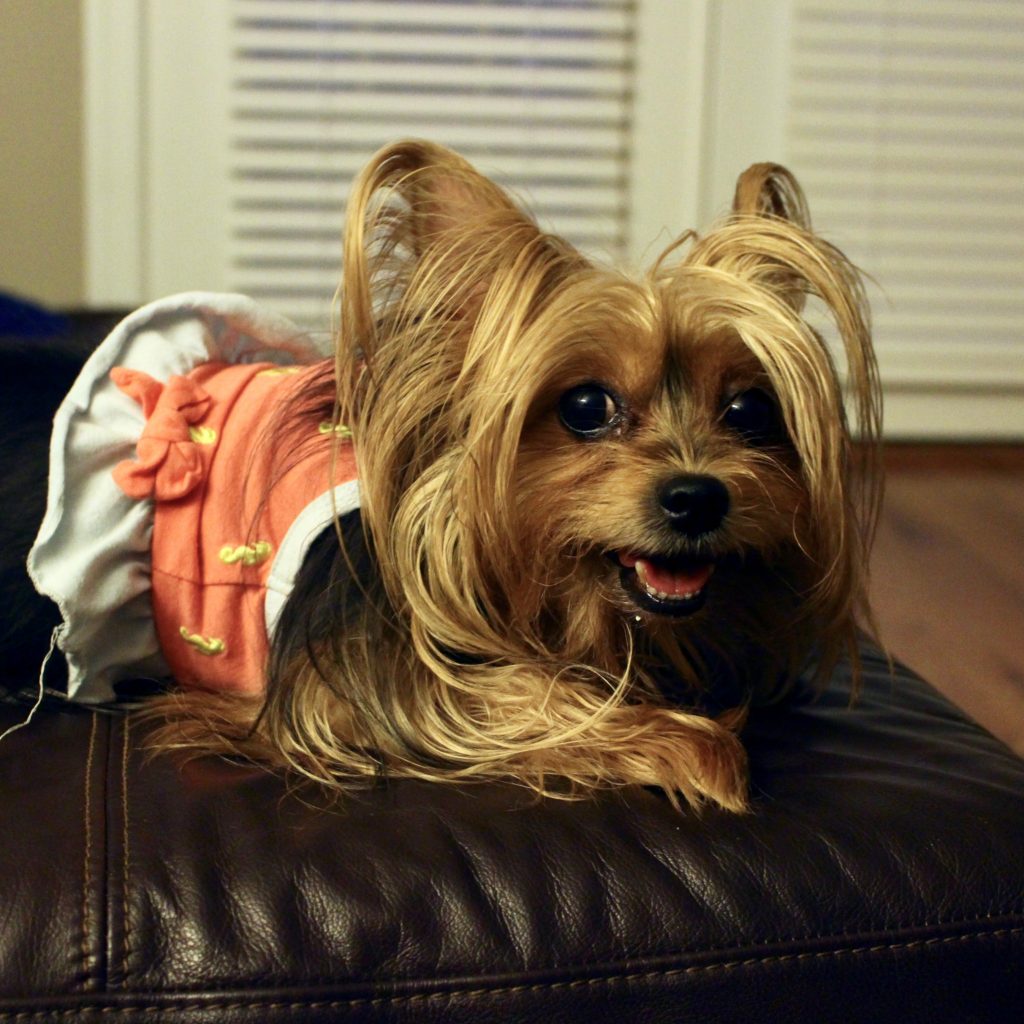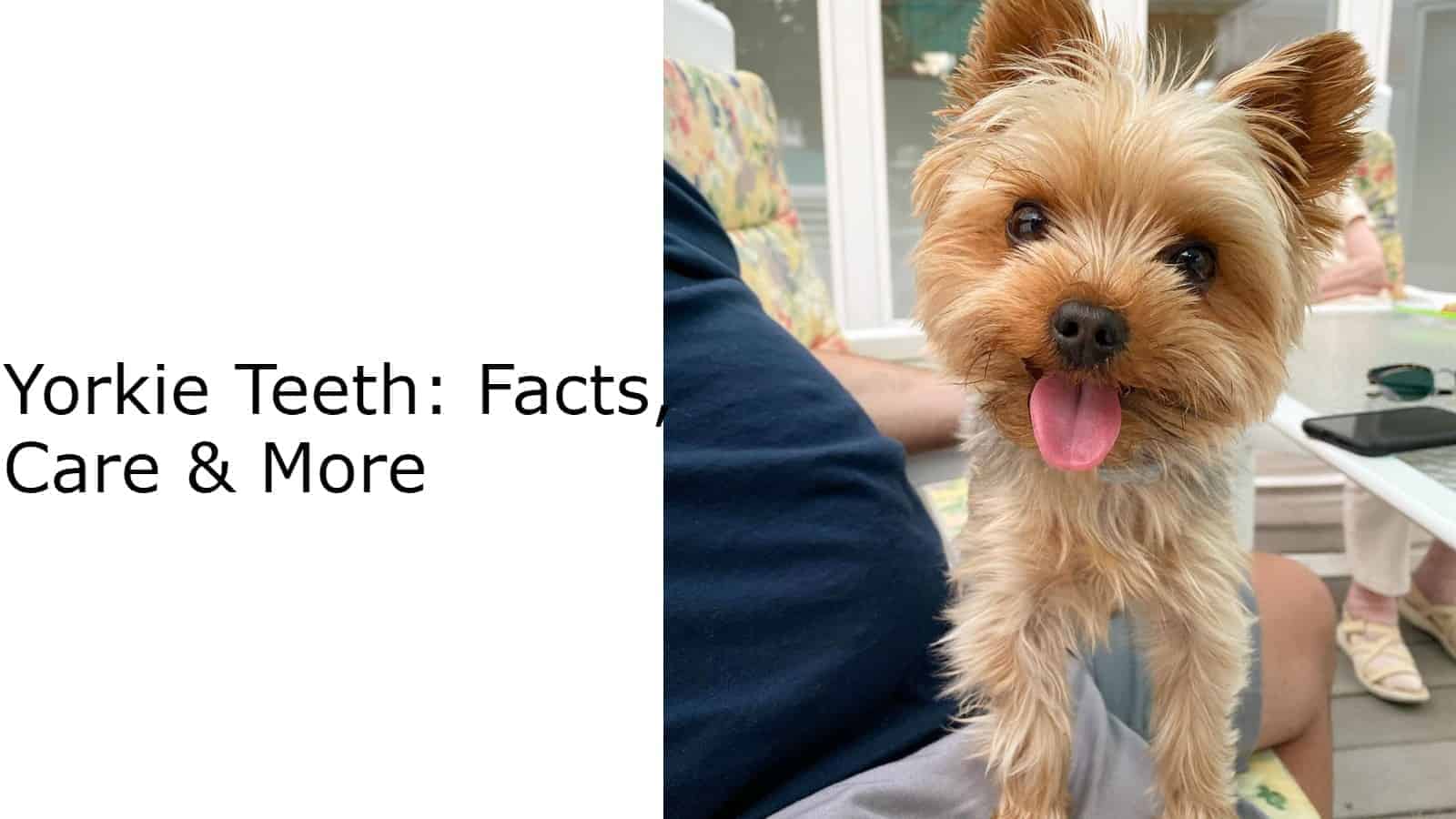Small dogs have tiny teeth, which can lead to problems. Unfortunately, our lovable Yorkshire Terriers belong to this category and often experience dental issues.
Ensuring a Yorkie’s dental hygiene and health is of the utmost importance in order to ensure your pet’s quality of life. While the influx of information regarding their dental care might be overbearing, it might still offer excellent tips and tricks.
However, to make things a bit easier, in this article, we explain everything you need to know about Yorkie teeth, their possible dental problems, how to clean their teeth, and more.

How Many Teeth Do Yorkies Have?
Originally, Yorkie puppies have 28 teeth, which should come out by the time they are six weeks old. These teeth are replaced by 42 adult teeth after about 8 to 10 months. However, some puppy teeth do not fall out in time, which can lead to overcrowding in their jaws.
Why Do Yorkies Have Dental Problems?
To put it simply, Yorkies are prone to dental problems because of their size.
Small dog breeds experience issues due to the anatomy and placement of their teeth in their jawline. While this might seem like a small issue, it can actually lead to a number of dental problems Yorkies can experience in their lifetime.
Furthermore, there is a minor difference between puppy and adult teeth when it comes to Yorkshire Terriers.
Yorkie Puppy Teeth
Yorkies get their first set of teeth, also known as puppy teeth, by the time they are 6 weeks old. These teeth should fall out and be replaced by their adult teeth in about 8-10 months.
Now the problem comes, when these puppy teeth do not fall out. The tooth rows become misshapen due to the adult teeth not erupting correctly. Since both the adult teeth grow out and the puppy teeth don’t fall out, Yorkies that have this problem have multiple rows of teeth.
It is important to have the puppy teeth extracted in such cases. This is a veterinarian procedure which removes unnecessary puppy teeth. In order to prevent permanent misalignment of the Yorkie’s teeth, this procedure should be done as soon as the problem is noticed.
Adult Yorkie Teeth
Yorkie adult teeth should come in by the time they turn 10 months old. These are the teeth that replace the puppy teeth and are the dog’s permanent set for the rest of its life.
However, the previous problem of tooth overcrowding still applies. If it is not fixed, it will permanently deform the Yorkie’s teeth, creating hard-to-clean areas in their mount. As Yorkies need daily cleaning, it can lead to other issues.
The other major problem which can arise is the rotation of their teeth. Yorkie teeth have tiny roots which do not provide a firm grip in their jawline. Due to this, their teeth can rotate and move, again creating problematic cleaning areas. Tooth rotation is also a sign of the early degeneration of their jaw bone density.
Most Common Yorkie Dental Problems
We have mentioned this before multiple times, but the small jawline and teeth of Yorkies can lead to numerous dental issues. If the dogs’ teeth are not cleaned properly, it can easily and quickly lead to one of these problems.
General tooth decay is probably the most common issue. The build-up of plaque and tartar left behind from food slowly but surely eats away at the tooth enamel. It also reaches under the gum line and causes hidden damage. Since Yorkie teeth cannot be operated on like human teeth, this often results in tooth loss.
Gum disease can also lead to tooth loss. This is basically the deterioration of the gums holding the tooth in place. Not only can this be painful to the dog, but it can also quickly lead to their teeth falling out.
Periodontal disease is an infection caused by the bacteria found in plaque is also a big problem. This is also caused by the build-up of plaque and tartar on the teeth and it can easily lead to gum disease, tooth loss, bone deterioration (mainly the jaw bone), and other major health problems.
Cleaning Your Yorkie’s Teeth
So, what can you do to keep those pearly Yorkie whites pearly?
There are multiple ways you can keep your Yorkie safe from dental issues, but all of them need you – the owner – to be diligent.
First of all, the most important thing is to take your dog to the vet regularly. Apart from the regular vet visits, additional vet visits should be accounted for whenever you notice a possible issue. Professionals are the ones who know the most about dental care and they will be able to guide you to the right path.
Your Yorkie’s teeth have to be brushed daily. You need to thoroughly clean their teeth, from all angles, every nook, and cranny, with soft brushing strokes angled down towards the gums. You can buy canine toothpaste, which does not foam and is fluoride-free – since dogs cannot rinse their mouths out. Additionally, you can get a fingertip brush to make things easier. While most dogs will not like this process, you can ease them into it.
Another excellent way to keep their teeth clean is to use dental wipes. If your Yorkie simply does not allow you to brush their teeth, these can prove to be a lifesaver. The dental wipes help prevent plaque build-up, especially when you combine them with other cleaning methods. However, they will not be much help to remove said build-up if it is already on the teeth.l
The next neat invention for restless dog-owners is the dental spray. However, this should only be used together with another cleaning method. It will not be helpful on its own. However, with other cleaning processes, the dental spray will help you improve your Yorkie’s oral hygiene. Just be sure to not get the ones that only freshen their mouths.
You can also get your hands on dental treats. These are small treats your Yorkie will love to eat, which will help you remove the plaque from their teeth. Furthermore, these edible chews are often manufactured with ingredients that prevent plaque build-up in the first place.
No matter which cleaning method you use for your Yorkie, you need to be consistent with it to get the results you want.
Visits to the Vet With Your Yorkie
When you notice a dental issue, you NEED to take your pet to the vet. If a problem has already reared its head, unfortunately, in most cases only professionals can help you.
But, what should you expect when you visit the vet with your Yorkshire Terrier?
It can be a regular examination or a full dental, or something in between – is the short answer.
If you notice problems with your pup, especially when you do not want to eat or chew, it might be a dental issue. These signs can also include bleeding gums, swelling, or halitosis.
However, when the veterinarian needs to examine AND clean their teeth, it is considered to be a full dental. For safety reasons, dogs are lightly sedated during this process.
During a full dental, multiple things are done to ensure your Yorkie’s dental health. They take x-rays to clearly see the teeth and the bone surrounding them. They use a hand-held probe that measures the space and pockets found between the teeth and the gums. Then the teeth are cleaned with ultrasonic scalers, above and below the gum line. They polish the Yorkie’s teeth and may apply a plaque guard. If additional problems are found, they are then also treated.
It greatly varies from dog to dog how often you need to take them to the vet for professional cleaning. But your at-home teeth cleaning regimen should not be neglected.
Healthy Teeth, Happy Yorkie
Sadly, many Yorkies suffer from dental problems even when they are preventable. Often the only way to solve the issues is to remove most of their teeth. In order to prevent this, they need to have excellent dental and oral hygiene.
This is where dog owners come into play. Our pets rely on us to have healthy teeth and we are the only ones who can keep them safe from such issues. Therefore, Yorkie owners need to be conscious of all of the problems that can arise.
Luckily, this is everything you need to know about what problems can appear, how to prevent them, and what to do if they actually appear. Now, it’s time for your Yorkie to show off their pearly and healthy white teeth.



9 thoughts on “Yorkie Teeth: Facts, Care & More”